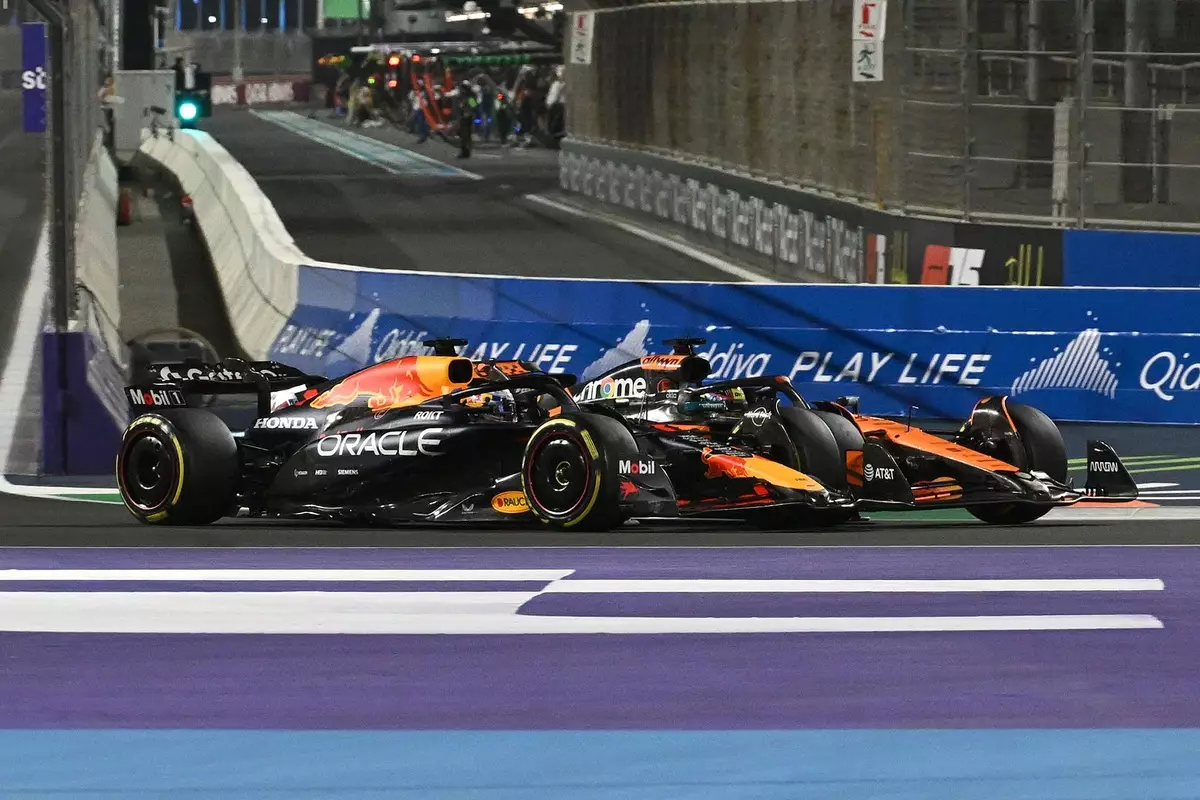In the fiercely competitive world of Formula 1, the balance of power is often dictated by the finest of margins. The recent Saudi Arabian Grand Prix provided a striking example of this reality when Max Verstappen faced a five-second penalty that stirred significant controversy among fans, teams, and pundits alike. The spectacle of high-speed racing pits top-tier drivers against one another, and the results can hinge on the most minute details—especially when it comes to complex track limits and overtaking maneuvers.
Verstappen, who had secured pole position, engaged in an intense battle for supremacy with McLaren’s Oscar Piastri. The conflict escalated when Verstappen left the track, leading the stewards to rule that he had gained an unfair advantage. The ensuing penalty had repercussions not only for the race’s outcome but also for the reputations of the competitors involved, and it serves as a reminder of the unyielding scrutiny that accompanies every decision in this elite sport.
Red Bull’s Calculated Decision: No Right of Review
Despite the initial outrage following the penalty, Red Bull Racing made the strategic decision not to file a right-of-review petition against the FIA’s ruling. Team principal Christian Horner’s frustration was palpable; however, a calculated evaluation of the situation led them to conclude that appealing would likely be an exercise in futility. Formulating a plausible argument that could convince the stewards to reverse their original decision presents a formidable challenge.
The FIA stewards, having viewed onboard footage during the race, determined that Verstappen’s maneuver was detrimental to Piastri’s racing position. Clearly, the data they processed showed that at least a portion of Piastri’s vehicle was alongside Verstappen’s at a critical moment, just before they navigated a corner. The implication of this decision underscores a crucial aspect of racing: the interpretation of events can often vary widely among teams and officials, and it is not uncommon for emotions to run high when races are at stake.
The Weight of Evidence and Its Limitations
Horner indicated that Red Bull would produce additional footage to clarify their case, a move that illustrates the complex dynamics of evidence in racing decisions. However, reflecting on past experiences, an appeal seems improbable to overturn a decision that has already been confidently made by the stewards. Red Bull’s acknowledgment of the likelihood of a rejection emphasizes the harsh reality of F1 regulations: once a verdict is passed, overturning it requires compelling evidence that can withstand the scrutiny of the same officials who initially rendered it.
The contrast with McLaren’s previous attempt to appeal a penalty at the United States Grand Prix further illustrates the difficulties teams face when questioning stewards’ judgments. If historical context provides any guidance, it showcases the challenges inherent in challenging the authority and decisions of the FIA. In the case of Verstappen, though his team felt justified in their actions and position, they ultimately chose to recognize the stewards’ authority.
Fan Reactions and the Legacy of Penalties
As motorsport aficionados analyzed the incident, opinions varied dramatically. Some fans sympathized with Verstappen, arguing that penalties could hinder the spirit of overtaking and excitement in racing, while others echoed the stewards’ sentiments, believing that strict adherence to rules maintains a level playing field. This incident serves as a barometer for the ongoing discourse surrounding race regulations in Formula 1, as passionate debates on sport and fairness continually unfold.
Ultimately, Verstappen’s five-second penalty might be a minor footnote in the grand scheme of a championship season, but it highlights the ever-present tension between competitive spirit and regulatory adherence in Formula 1. As teams like Red Bull navigate the often murky waters of racing rulings, the aftermath of the Saudi Arabian Grand Prix serves as a stark reminder of the complexities that characterize Formula 1: where brilliant display combines with equally brilliant controversies, and the battle for supremacy goes far beyond the asphalt.


Leave a Reply